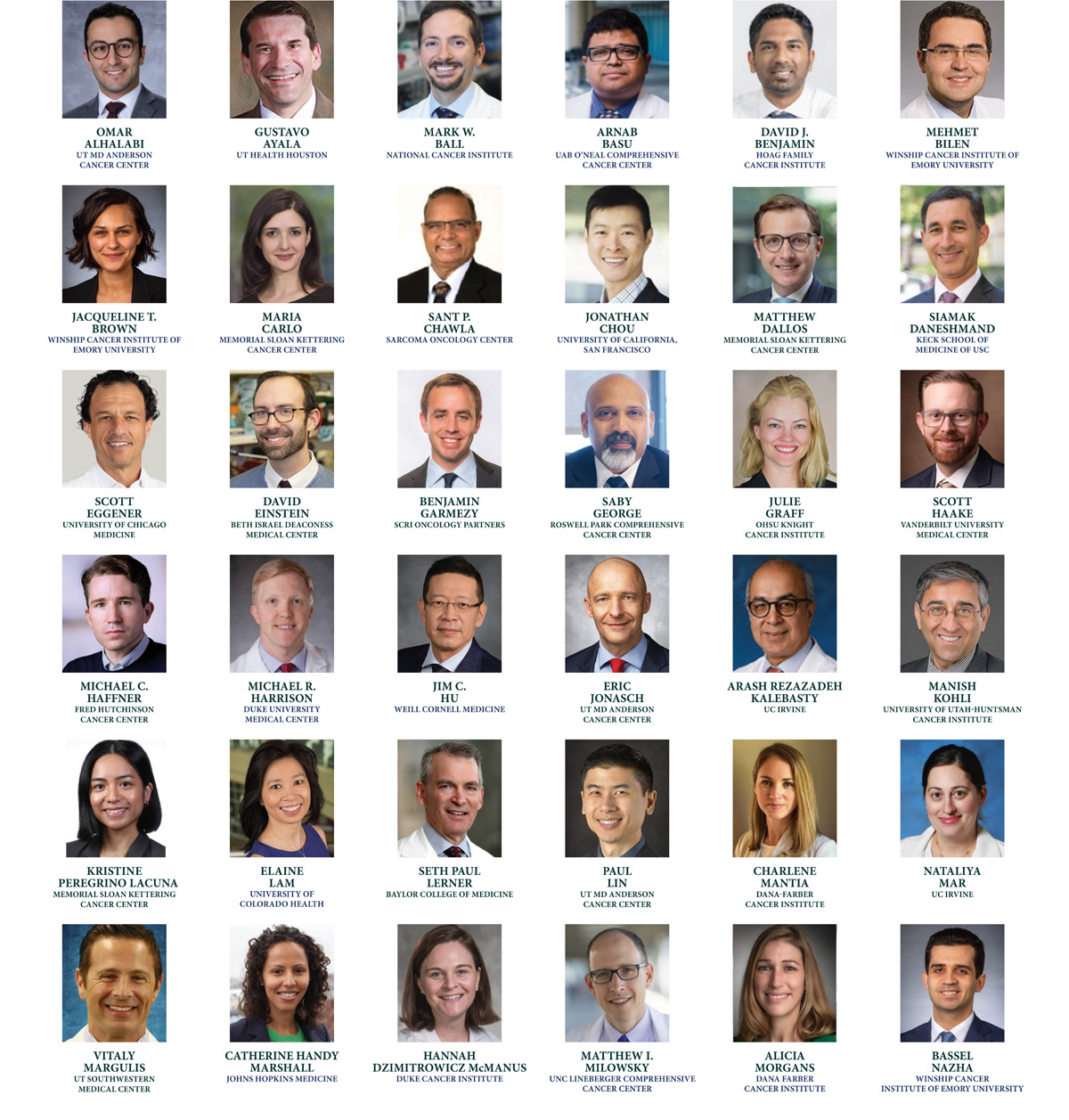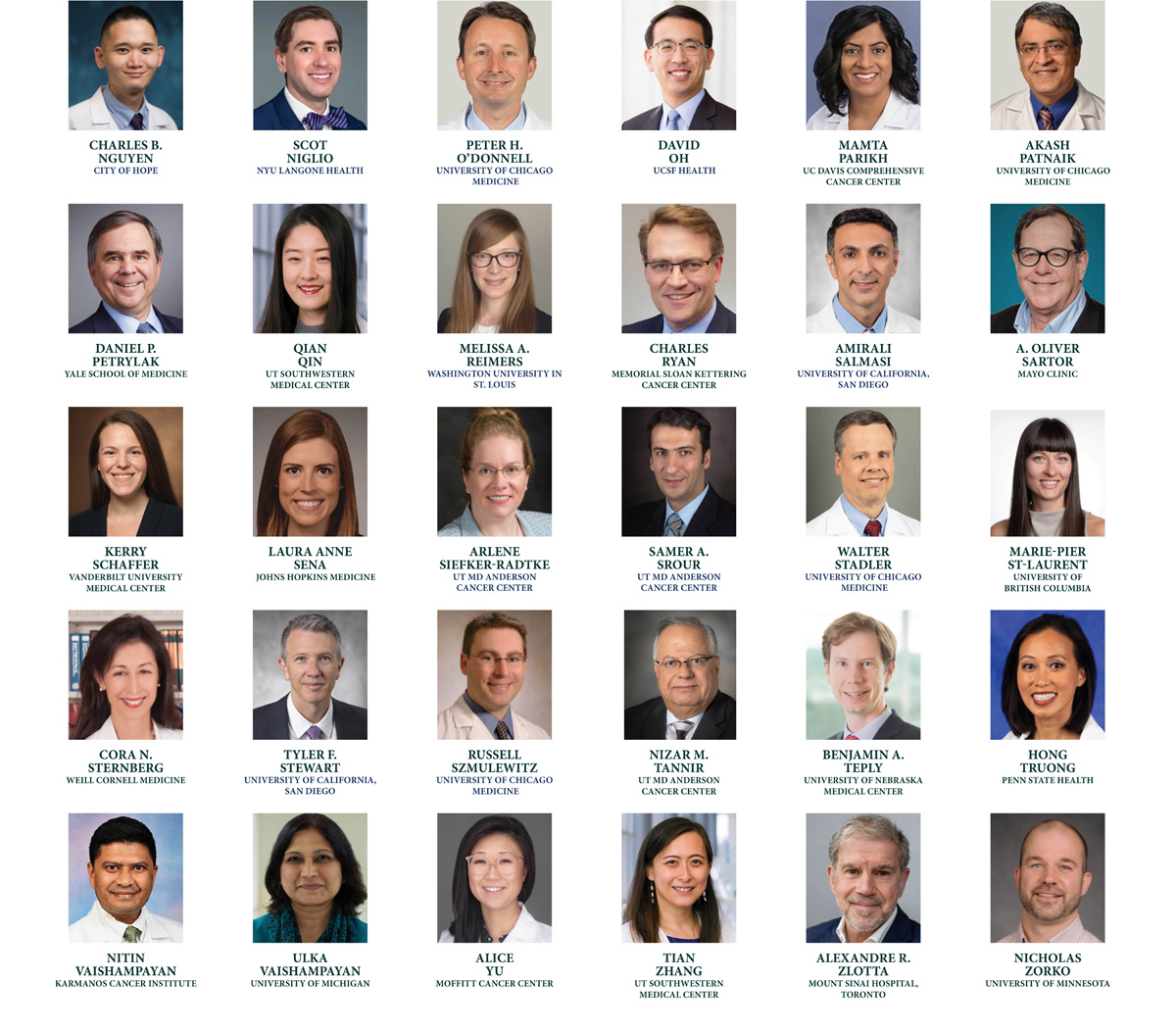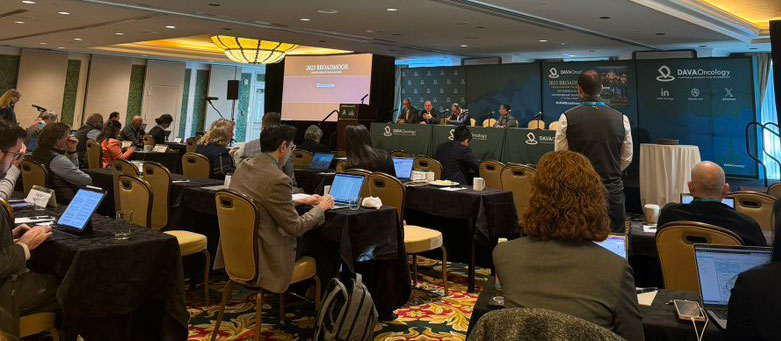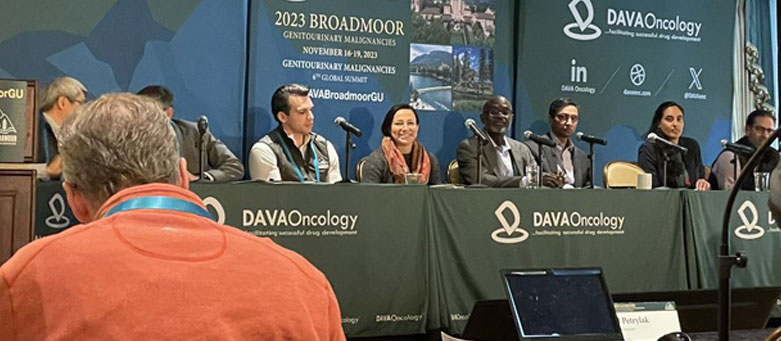
7th Annual Summit on
GENITOURINARY
Malignancies
November 20-24, 2024
The Broadmoor
Colorado Springs, Colorado
The management of genitourinary malignancies has undergone significant advancements in recent years. Renal cell carcinoma, urothelial carcinoma of the bladder, and prostate adenocarcinoma are among the most prevalent genitourinary cancers, characterized by diverse histological profiles and treatment approaches. However, all three types have experienced substantial shifts in their therapeutic landscapes, driven by a deeper comprehension of their molecular mechanisms and oncogenic drivers.
One of the most notable breakthroughs in recent times has been the emergence of immunotherapies, particularly immune checkpoint inhibitors. In addition to immunotherapy, researchers are actively exploring innovative agents targeting various molecular targets, including antibody drug conjugates, PARP inhibitors, small-molecule tyrosine kinase inhibitors, mTOR inhibitors, and novel fusion proteins, among others.
The Broadmoor GU Cancer Summit spans five days and encompasses eight four-hour sessions featuring presentations by more than 70 key opinion leaders. This gathering brings together translational researchers, clinical experts, and prominent community oncologists to tackle the ongoing challenges in the dynamic field of prostate, kidney, and bladder cancer and the evolving treatment paradigms. Through didactic lectures, panel discussions, and case presentations spotlighting individual patient dilemmas and innovative solutions, the summit delves into compelling data on the impact of novel strategies. Renowned specialists in genitourinary cancers will deliver presentations and engage in insightful Q&A sessions, while interactive sessions will address clinical management challenges. Additionally, the summit offers a platform for fellows and junior faculty to present and discuss their research abstracts. Industry representatives will also showcase emerging therapies in prostate, kidney, and bladder cancer. Ultimately, the summit aims to review, foster discussion, and debate the clinical and practical changes anticipated in the next five years.
SPEAKERS





SPEAKRES

